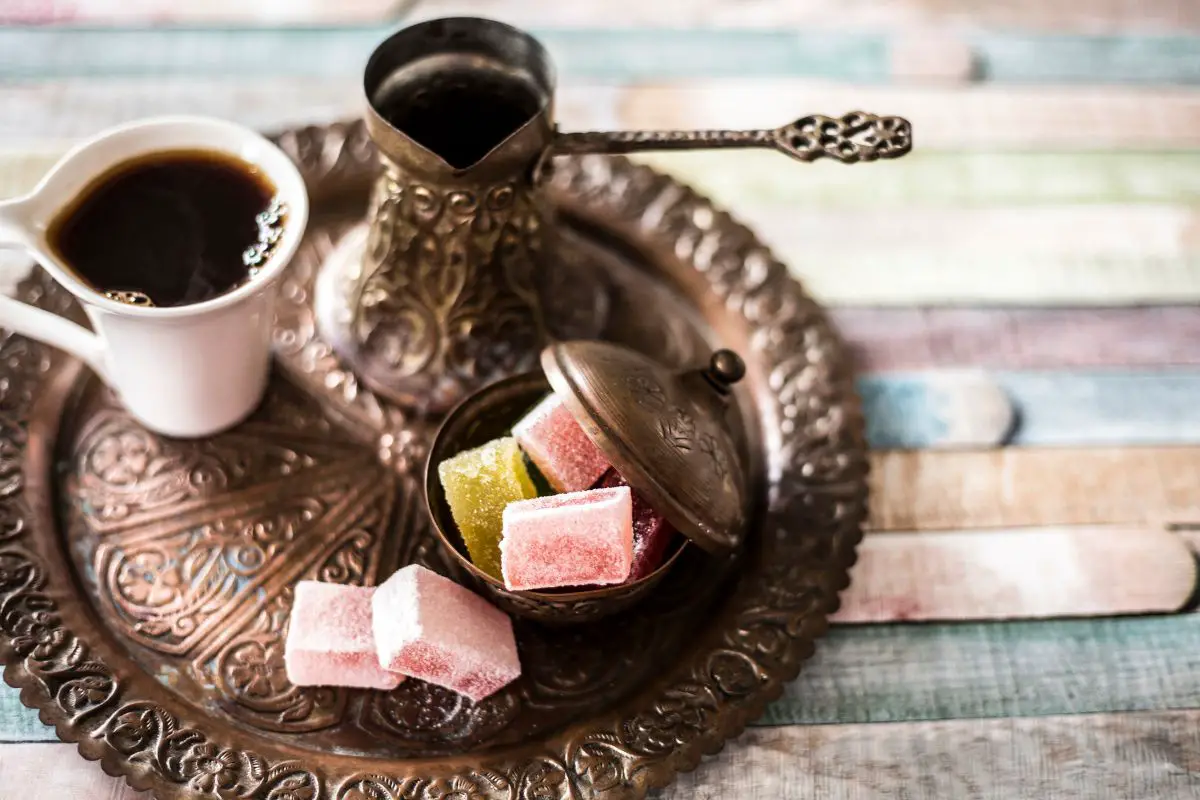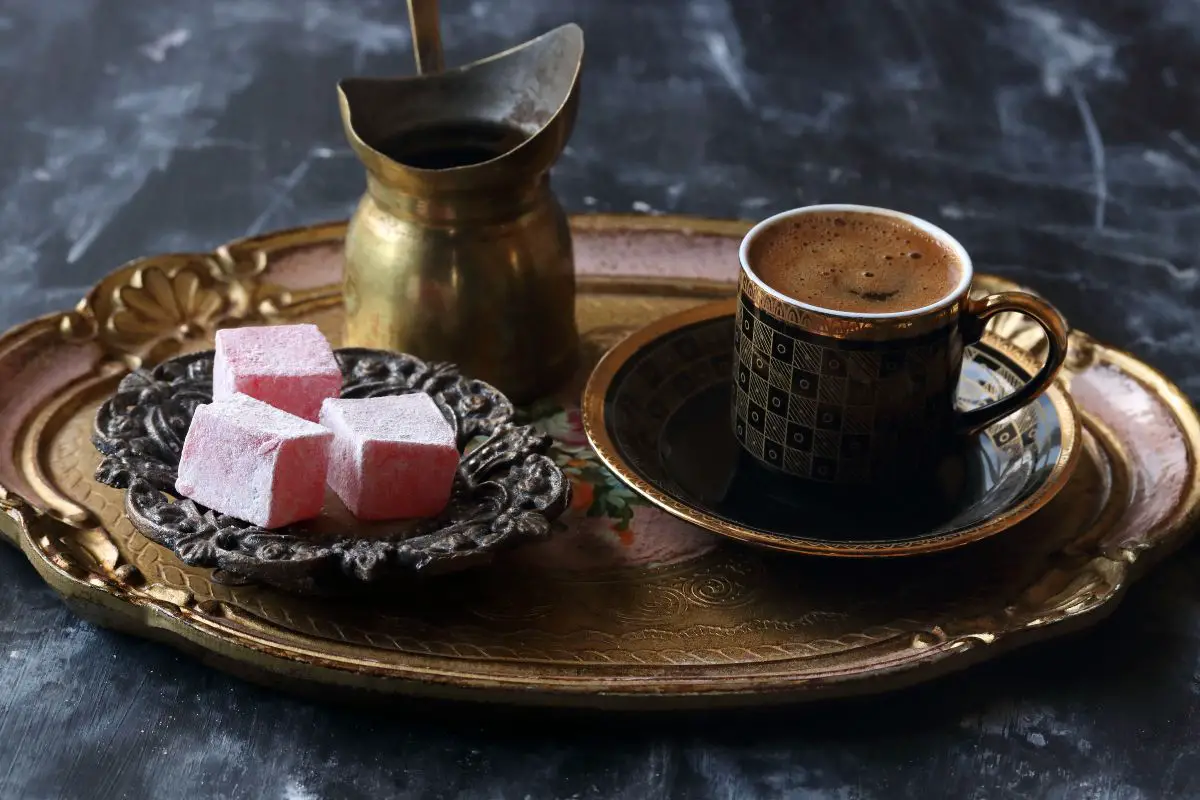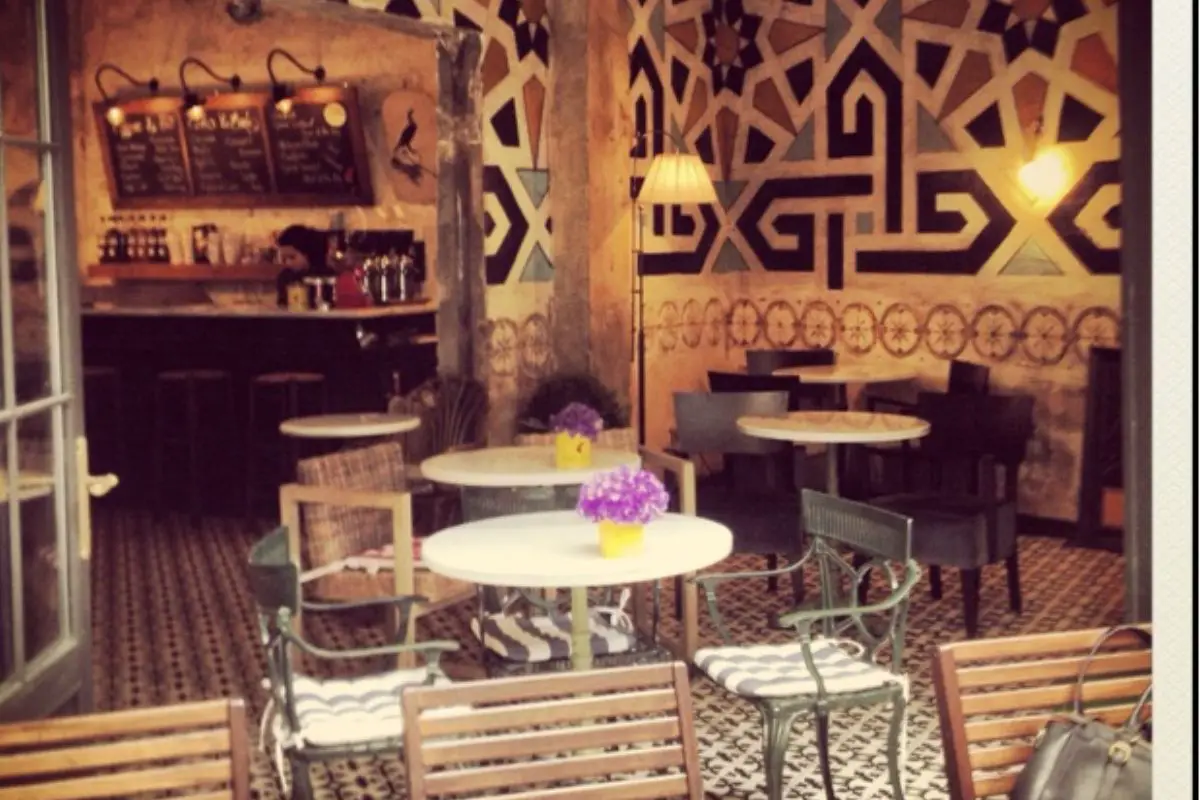In this article, readers will delve into the rich history and cultural significance of coffee in Turkey. Beginning with the introduction of coffee to the Ottoman Empire and the establishment of coffeehouses, to the traditional preparation methods and the role of coffee in social gatherings, engagements, marriages, and funeral ceremonies. The article also explores the impact of coffee culture on the Turkish economy, through production, international trade, and its influence on the growth of café culture. From historical roots to modern third-wave coffee shops, discover the importance of coffee in Turkish society and its unique role in shaping the country’s identity.

Historical Background of Coffee in Turkey
The arrival of coffee in the Ottoman Empire
The history of coffee in Turkey can be traced back to the 16th century when coffee was introduced to the Ottoman Empire. Coffee beans were originally discovered in Ethiopia and then spread to the Arabian Peninsula. The Ottoman Empire, known for its expansive trade networks, cultural exchanges, and conquests, soon adopted coffee from the Arabian Peninsula.
Several historical accounts attribute the introduction of coffee to the Ottoman Empire through the involvement of Ottoman Governor Özdemir Pasha. He was captivated by the strong, bold, and bitter beverage he tasted during his governorship in Yemen in the early 16th century. Upon his return to Istanbul, he brought with him coffee beans and the knowledge of coffee brewing, sparking a new love for the drink within the empire.
At the time, the recipe for making coffee was simple: coffee beans were roasted, crushed, boiled in water, and then the mixture was strained before being served. Over time, the process evolved and became more refined, ultimately developing into what is now known as Turkish coffee.
Evolution of coffeehouses in the Ottoman period
As coffee became more popular, coffeehouses began to pop up across the empire. The first coffeehouse, named Kiva Han, was opened in Istanbul’s Tahtakale district in 1555. These establishments not only served coffee but also played an important role in the social and cultural life of the Ottoman Empire. Patrons of coffeehouses enjoyed conversation, literature, music, and games like backgammon while sipping their brews.
Coffeehouses soon spread throughout the empire, from Istanbul to Cairo and even to Hungary. These establishments played a significant role in shaping the political and social landscape of the time. They evolved into spaces where intellectuals, politicians, and artists gathered to exchange ideas and discuss matters of the state.
However, not everyone was pleased with the growing popularity of coffeehouses. For instance, several sultans issued bans on coffee and coffeehouses due to concerns that they were fostering unrest and rebellious behavior. Despite the bans, coffeehouses remained popular and continued to evolve, ultimately becoming an integral part of Ottoman society.
Regional influences on Turkish coffee culture
The coffee culture in Turkey has been influenced by various regional forces throughout history. The diverse ethnic and cultural groups present in the Ottoman Empire contributed their own flavor to the burgeoning coffee phenomenon.
For instance, Armenians, who have been a part of Turkish society for centuries, played a significant role in refining the roasting and brewing process, resulting in a darker, smoother, and richer brew. Similarly, visitors from European countries like Austria and Hungary brought back coffee beans and adapted their local tastes to the Ottoman coffee tradition, leading to the creation of unique blends and flavors.
These cross-cultural exchanges contributed to the development of a distinct coffee culture in Turkey, which remains a pivotal aspect of the nation’s identity today.
Role of coffee in the decline of the Ottoman Empire
Though coffee played a significant role in establishing social and cultural ties throughout the Ottoman period, its influence was not entirely positive. In the late 19th and early 20th century, the empire faced a decline marked by political instability, economic crises, and military defeats.
During this period, coffeehouses took on a negative connotation, as they were often seen as breeding grounds for dissent and conspiracy. The leisurely lifestyle associated with coffee consumption was believed to contribute to the decline of Ottoman society, distracting its people from productivity and progress.
Detractors of coffeehouses argued that they encouraged negligence, gossip, and even criminal behavior, further weakening the empire. Although it is debatable whether coffeehouses played a significant role in the decline of the Ottoman Empire, it is clear that their impact on the historical development of Turkey cannot be overstated.
Traditional Turkish Coffee

The preparation process
Turkish coffee is a unique method of preparing coffee that has been an integral part of Turkish culture for centuries. It is renowned for its strong taste and the traditional technique used for its preparation. The process involves grinding the coffee beans, heating the coffee in a cezve, and adding sugar or other flavorings, and it follows a very specific order to ensure the proper consistency and taste of the coffee.
Firstly, grinding the coffee beans is a critical step in the preparation of Turkish coffee. The beans should be ground as finely as possible, almost to a powder-like consistency. Using a traditional burr grinder, known as a kahve degirmeni in Turkish, will result in the proper texture required for Turkish coffee. The beans can be ground by hand, although electric grinders specifically designed for Turkish coffee are also available. The coffee grounds used for Turkish coffee are much finer than those used for other methods such as French press or espresso, ensuring a more robust flavor extraction from the beans.
Next, heating the coffee in a cezve, a small, long-handled pot traditionally made of brass or copper, is a crucial aspect of the preparation process. The cezve contains the ground coffee, water, and any added sugar or spices, and it is heated over a low flame or on a heated sand bed for a controlled and slow brewing process. The heat must be well-regulated to avoid boiling the coffee, as boiling will cause the coffee grounds to become bitter and the consistency will be ruined. As the coffee mixture heats up, a thick, frothy foam will begin to form on the surface. This foam is known as the “crema” and is a sign that the coffee is properly heated and ready to be served.
Adding sugar and other flavorings, such as cardamom or cinnamon, is often done during the brewing process. The amount of sugar added depends on personal taste preferences, and it is added to the cezve along with the coffee grounds and water. Typically, Turkish coffee is prepared without milk, as the addition of milk would alter the unique taste and consistency of the final product.
Serving and presentation
The art of Turkish coffee is not only about its preparation but also its serving and presentation. Using traditional cups and saucers, known as fincan and tabak respectively, is a vital aspect of maintaining the cultural experience of Turkish coffee. The cups are small and typically made of porcelain, often adorned with intricate designs and patterns that reflect Turkish art and culture.
The coffee is poured from the cezve into the fincan, ensuring that the crema is equally distributed among the cups. It is common to serve Turkish coffee accompanied by a glass of water and a piece of Turkish delight, a sweet confection often flavored with rose, pomegranate, or lemon. The water is used to cleanse the palate before tasting the coffee, ensuring a full appreciation of its bold flavor and aroma, while the Turkish delight complements and balances the intensity of the coffee.
Key elements distinguishing Turkish coffee
Two primary characteristics distinguish Turkish coffee from other methods of coffee preparation: the consistency and thickness of the coffee, and its taste and intensity.
The consistency and thickness of Turkish coffee is much different from other coffee brewing methods. The use of a cezve and the specific grind of the coffee beans result in a thick, almost syrup-like consistency in the coffee. This texture is a signature characteristic of Turkish coffee, and it imparts a strong, layered depth of flavor that is highly prized by connoisseurs.
The taste and intensity of Turkish coffee are unmatched by other brewing methods. It offers a bold flavor and strong aroma, making it an intense and unforgettable coffee experience. The unique preparation process, the small serving size, and the cultural significance add to the overall experience of enjoying traditional Turkish coffee, making it a cherished tradition in Turkey and among coffee lovers worldwide.
Coffeehouses in Turkey
The significance of coffeehouses in Turkish society
Since the 16th century, coffeehouses have held significant roles in Turkish society, serving as important social institutions. They have become a cornerstone of Turkish culture, providing space for interactions, discussions, and even artistic expression. The first coffeehouses in the Ottoman Empire were public places visited by every segment of society, regardless of age, profession, or social status. As such, they have been vital to the development and sustenance of community cohesion across the centuries.
A meeting place for social gatherings
Turkish coffeehouses have always played a significant role in social gatherings, providing a warm, welcoming atmosphere where friends and families can catch up, enjoy a cup of coffee, and discuss the day’s events. The importance of these gatherings goes beyond simple socialization, as they also function as venues for important discussions and negotiations regarding business, family, and communal matters.
In rural towns and villages, coffeehouses often act as the primary social hub for men in particular. They are not exclusively male spaces, but women have historically been less frequent patrons. Today, traditional coffeehouses are still a predominantly male domain where locals would gather, play board games like backgammon, and engage in lively conversations.
An intellectual hub and symbol for artistic expression
Throughout history, Turkish coffeehouses have also been sanctuaries for the exchange of intellectual ideas, cultural expression, and artistic projects. Istanbul’s flagship coffeehouses, for instance, hosted important poets, writers, and artists who would convene to give recitals, hold philosophical debates, or exhibit their newest work. Coffeehouses in Turkey have been essential in promoting and preserving Turkish cultural heritage by providing venues for traditional arts such as shadow theater, storytelling, and live music.
Traditional coffeehouses
Traditional Turkish coffeehouses are easily recognizable by their distinct architectural style and interior designs. The welcoming environment and the unique customs practiced in these coffeehouses contribute to their enduring appeal.
Features and design elements
Turkish coffeehouses are typically adorned with various cultural artifacts, including traditional items such as rugs, cushions, and low wooden tables which create a comfortable yet energetic atmosphere. Wood-carved decorations are also common, as are Ottoman-era paintings and photographs displaying storied Turkish figures and landscapes. Lighting fixtures such as lamps, often with ornate designs, provide a warm glow that further enhances the ambiance.
The tavla (backgammon) set is another ubiquitous feature of traditional coffeehouses, as the game is often enjoyed by the patrons in tandem with their cup of Turkish coffee.
Offering fortune-telling after coffee drinking
One unique feature of visiting a Turkish coffeehouse is the opportunity to have one’s coffee grounds interpreted for fortune-telling. This practice, known as “tasseography” or “tasseomancy,” involves reading the patterns left by the grounds on the inside of the coffee cup to predict future events or reveal hidden meanings. This tradition is often playful and not taken too seriously, but it remains a charming aspect of the Turkish coffeehouse experience.
Modern Turkish coffeehouses

As Turkey’s urban landscape evolves and becomes more globalized, so too does its coffee scene. This evolution has led to a rise in Western-style and third-wave coffee in the country.
Evolution and globalization of coffee culture
Today, major global coffee chains can be found in Turkey, reflecting the globalization of coffee culture. The arrival of these chains has introduced new coffee types and consumer preferences. As a result, modern coffeehouses in Turkey often serve not only traditional Turkish coffee but also espresso-based beverages and other trendy coffee varieties to cater to different tastes.
Third-wave coffee shops in Turkey
In line with global trends, Turkey has also embraced the third-wave coffee movement. Third-wave coffee shops, which prioritize quality, artisanal production methods, and ethical sourcing, have sprung up across the country, particularly in metropolitan areas. These modern coffeehouses aim to showcase a diverse range of coffee flavors and styles, often sourced from local producers who champion sustainable and organic practices.
This influence has also trickled down to traditional Turkish coffeehouses, which now often serve higher-quality blends and an expanded selection of coffee types. Traditional Turkish coffeehouses and contemporary third-wave coffee shops ultimately coexist, offering visitors a diverse and immersive journey into Turkey’s rich and evolving coffee culture.
Coffee in Turkish Social Life and Customs
Coffee and Turkish hospitality
Coffee has occupied an essential place in Turkish hospitality for centuries. As a symbol of warmth and friendship, treating visitors and guests to coffee is commonplace in Turkish culture. Guests are generally served coffee upon arrival, as it is considered a polite gesture to extend a warm welcome.
For many generations, serving coffee to guests is an integral part of Turkish household customs. This unique sentiment is reflected in a famous Turkish proverb that says "A cup of coffee has a memory of forty years," meaning that sharing a cup of coffee with someone builds friendship and trust that lasts for a long time.
In Turkish society, guests are typically greeted with the offer of coffee, and refusing to accept it can be seen as a sign of disrespect or hostility. Conversely, accepting the offered coffee signals the guest's openness to engage in conversation or build a relationship. This importance on accepting coffee makes it a significant aspect of Turkish hospitality and interpersonal relationships.
Coffee in lifecycle rituals
Turkish coffee also plays a crucial role in lifecycle rituals, particularly in engagements and marriages. During the engagement ceremony, the bride prepares and serves coffee to the groom and his family. This is a symbolic gesture, as the bride demonstrates her ability to fulfill her role as a wife and hostess. The coffee is traditionally served with a high level of sugar, but some brides may also serve coffee without any sugar or with a slight hint of salt as a test of their future spouse's character.
Coffee is also prominent at funeral ceremonies. After the death of a family member or friend, people gather in the deceased's home to offer condolences and support. Coffee is served to help create a comfortable atmosphere for mourners, providing warmth and comfort during a difficult time. In this context, coffee symbolizes unity and shared grief among family and friends.
Coffee and Turkish identity
Turkish coffee holds a special place in the Turkish identity, incorporating elements of both national pride and regional diversity. The deep-rooted coffee culture is reflected in many aspects of Turkish society, including folklore, proverbs, and the arts. In Turkish literature and arts, coffee often symbolizes nostalgia, love, and friendship.
The unique preparation and presentation of Turkish coffee, which involves brewing finely ground coffee with water and sugar, distinguish it from coffee-making traditions of other cultures. In recent years, the significance of Turkish coffee has been recognized internationally. In 2013, UNESCO added Turkish coffee culture and its associated traditions to its list of Intangible Cultural Heritage of Humanity. This acknowledgment has cemented Turkish coffee's position as a significant aspect of global cultural heritage.
The recognition from UNESCO not only promotes the preservation of Turkish coffee culture but also elevates its status as an emblem of cultural unity and identity. It encourages the sharing of traditional coffee-related customs, practices, and knowledge, ultimately fostering intercultural understanding and dialogue.
In summary, coffee is deeply ingrained in Turkish social life and customs, playing essential roles in hospitality, lifecycle rituals, and national identity. The unique brewing and serving practices, coupled with the rich cultural symbolism attached to Turkish coffee, make it an invaluable facet of Turkey’s shared heritage. The recognition from UNESCO serves to underscore the significance of maintaining and promoting Turkish coffee culture, ensuring its continued relevance and appreciation in both the national and international arena.
Impact of Coffee Culture on Turkish Economy
Coffee production and international trade
Coffee has a significant place in the Turkish culture, with a history dating back to the 16th century when Istanbul saw the establishment of its first-ever coffee house. Turkey has been involved in coffee production and trade for centuries, which has contributed significantly to the country’s economy.
The coffee industry in Turkey mainly focuses on the production of roasted and ground coffee. The key factor that drives the Turkish coffee industry is the high domestic consumption. Coffee production in Turkey is limited, which means the country has to import a significant amount of raw coffee beans to meet the demand.
The main coffee producing regions in Turkey are concentrated in the southern parts of the country, such as Mersin, Antalya, and Hatay. These areas have the most suitable climate and soil conditions for coffee farming. However, domestic production has been on the decline due to increasing costs and challenges faced by local producers. This has led to a higher dependency on coffee imports.
Turkey is one of the leading coffee-importing countries in the world. The country heavily relies on raw coffee bean imports, with Brazil, Vietnam, and Colombia being the top suppliers. Brazilian coffee varieties such as Arabica are favored by Turkish coffee consumers, which influences their import choices.
The exports of Turkish coffee are relatively insignificant in comparison to imports. However, there is increased interest in Turkish coffee by global consumers due to its unique flavor and cultural significance. As such, there has been a gradual growth in the demand for Turkish coffee, providing an opportunity for expansion into new international markets.
The effects of coffee consumption on the domestic economy
The coffee culture in Turkey has had a significant impact on the country’s domestic economy, with several benefits arising from increased consumption and production.
Infrastructure and employment are major aspects of the domestic economy that benefit from the coffee industry. Over the years, the growth of the coffee sector and café culture in Turkey has encouraged the development of infrastructure and increased employment opportunities in the industry. Coffee houses are a common sight in cities and towns across Turkey, providing thousands of individuals with job opportunities.
Urban areas in Turkey, such as Istanbul, Ankara, and Izmir, have witnessed a surge in the number of specialty coffee shops, which has boosted the growth of the coffee industry. These coffee shops serve as a hub for socialization and community-building, increasing the popularity of coffee consumption.
The increasing number of coffeehouses and chain establishments has driven significant growth in the coffee shop market. This, in turn, has led to the expansion of the market for coffee paraphernalia such as coffee machines, espresso makers, and other coffee-related items. The demand for these items creates more business opportunities and strengthens the links between different sub-sectors of the industry.
Moreover, tourism in Turkey is positively affected by the country’s unique coffee culture. The ritual of Turkish coffee preparation and service attracts travelers seeking to experience a distinct element of Turkish cultural heritage. This encourages more visitors to the country, boosting the overall tourism industry.
In summary, the coffee industry and its deep roots in the culture and history of Turkey have significant effects on the country’s economy. Despite the challenges faced by domestic coffee producers, the high coffee consumption and the growth of the coffee shop market in Turkey drive the industry’s expansion. The rising global interest in Turkish coffee provides further opportunities for growth and international recognition. Additionally, the domestic economy is positively influenced by increased infrastructure and employment opportunities as well as the beneficial impact on tourism.
FAQs on The Role of Coffee in Turkish Culture and Society
How is the role of coffee reflected in Turkish daily life?

In Turkish daily life, coffee is significant in social interactions and rituals, such as hosting guests, conversations, and celebrations. The unique preparation method and sharing of Turkish coffee symbolize hospitality, friendship, and community bonding.
What makes Turkish coffee distinct from other coffee varieties?
Turkish coffee is unique due to its preparation and serving style. Finely ground coffee beans and sugar are boiled together in a special pot called a “cezve.” The resulting thick, frothy beverage is traditionally served in small, ornate cups, without filtering the grounds.
Does Turkish coffee have any connection to fortune-telling?
Yes, Turkish coffee is linked to the practice of tasseography or fortune-telling. After finishing the beverage, the coffee grounds remaining in the cup are analyzed for patterns, which are believed to reveal the drinker’s future and offer insight into their personal life.
What is the tradition behind offering coffee to guests in Turkey?
Offering coffee to guests in Turkey represents a gesture of hospitality and respect. Turkish coffee is often served with a piece of Turkish delight to balance the strong, rich flavor. It is customary for guests to accept the coffee graciously and sip it slowly, appreciating the flavor and ambiance.
How has coffee influenced Turkish literature and art?
Coffee has inspired Turkish literature and art by serving as a central theme and symbol, reflecting human experiences and social relations. Famous works, such as author Orhan Pamuk’s novels, utilize coffee to express intricate relationships and the cultural landscape of contemporary Turkish society.
What was the historical significance of coffee houses in Turkish society?
Historically, coffee houses in Turkish society were vital hubs for socialization, intellectual discussions, and artistic performances. In the Ottoman Empire, they served as community centers where people could debate, share ideas, play games, and engage in various cultural activities, fostering creativity and social cohesion.